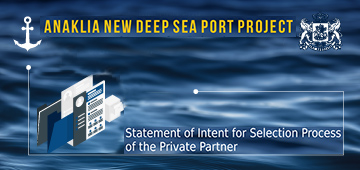Law of Georgia on the Management and Regulation of Transport Sector determines the main organizational principles and legal basis as well as state policy and technical regulation bodies.
Transport legislation also consists of sectoral codes and laws. In the field of civil aviation the Air Code of Georgia is in force by which management of air space, issuance of permits, certification of aviation personnel is regulated.
The road transport is regulated by the basic Law on Road Transport which determines the main objectives, management of this sector and general rules for permit issuance. The Law of Georgia on Traffic and the Law of Georgia on Roads are also applied to regulate the sector.
In the field of railway transport, the Railway Code of Georgia is in force which determines the basic principles for organizing transportation, general rules for freight carriage and registration.
In the field of Maritime transport, the following normative acts are in force: Maritime Code, Law of Georgia on Maritime Space, Law of Georgia on Maritime Rescue Service, Law of Georgia on Education and Certification of Seafarers and Law of Georgia on Education and Certification of Seafarers and Fishermen.
The Maritime Code of Georgia regulates relations regarding maritime navigation. Maritime navigation means the use of ships for transporting passengers, cargo, luggage and post, for fishing and harvesting maritime resources, exploring and extracting minerals, for towage and rescue operations and for other economic, scientific and cultural purposes.
The Law of Georgia on Maritime Space determines the legal status of the internal waters, territorial sea (waters), contiguous zone, exclusive economic zone and continental shelf of Georgia in the Black Sea in accordance with universally recognized principles and norms of International Law.
Law of Georgia on Maritime Rescue Service regulates the rules for rendering assistance to all persons, vessels or/and aircraft in distress at sea regardless their national affiliation and status, and the rules for combating spills of oil and hazardous substances resulting from maritime incidents.
Law on Education and Certification of Seafarers determines the uniform standards and rules for teaching, training, certifying seafarers in Georgia and gaining competence, as well as navigation standards for vessels flying under Georgian flag, the system for monitoring maritime educational institutions, for recognizing and monitoring maritime training institutions and for selecting and monitoring medical institutions.
The Law of Georgia on Education and Certification of Seafarers and Fishermen establishes the common system for educating and certifying seafarers and fishermen according to the Georgian Legislation and International Standards of Certification, Training and Watchkeeping for Seafarers and Fishermen.
In the transport sector technical regulation is carried out on the basis of subordinate normative acts. According to the Product Safety and Free Movement Code and Law of Georgia on Management and Regulation of the Transport Sector, technical regulations are adopted only by law or ordinance of the Government of Georgia. The list of technical regulations is adopted by the Government of Georgia.
The aviation, land and maritime transport agencies within their competencies elaborate technical regulations relating to safety and security. Directors of the Maritime Transport Agency and Civil Aviation Agency have the right to issue a normative act-order.
- ECONOMIC POLICY
- SME Development Strategy of Georgia
- Foreign Trade
- Energy
- Transport
- Communications, Information and Modern Technologies
1403
2 99 11 11
2 99 11 61
2 99 11 70






















